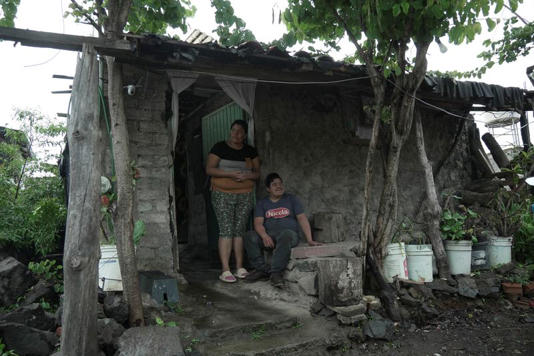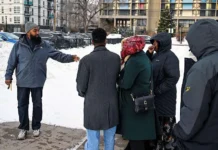On a chilly November night in 2016, as broadcasters announced Donald Trump’s victory in the U.S. presidential election, 25-year-old Sonia Coria turned to her husband with a question that would change their lives forever: “Should we go home?”
At the time, the young couple and their two children were building a modest but hopeful life in Glendale, Arizona, far from the cartel violence and intimidation that had driven them from Uruapan, a town in the volatile Mexican state of Michoacán.
Their escape had been legal and by the book. They had entered the United States through a formal border crossing and filed for asylum, seeking protection from the escalating threats in their hometown. But with Trump’s campaign rhetoric filled with anti-immigrant messaging and vows to tighten the asylum system, fear began to gnaw at their fragile sense of security.
“We thought we had done everything the right way,” Coria said. “But after that night, we felt like we didn’t belong here anymore.”
A New Life, Briefly
In Glendale, a city of about 250,000 just outside Phoenix, Sonia and her husband Carlos Leon, also 25, were slowly piecing together a new beginning. Carlos worked as a gardener, while Sonia cleaned homes and businesses. They shared a two-bedroom apartment with Sonia’s aunt in a largely Latino neighborhood, surrounded by signs of familiarity and culture, Carnicería Uruapan, a butcher shop named after their hometown, sat just across the street.
Their children were beginning to thrive. Naomi, then eight, had enrolled at a charter school and was learning English. Five-year-old Carlos Jr. had started riding a bike and playing with neighborhood kids. The small kidney-shaped pool in their condominium complex became a place of laughter and bonding, Naomi even learned to swim there.
But all of that changed with a single election.
A Voluntary Departure Fueled by Fear
Although their asylum case was still in process and they had no deportation order, fear of sudden immigration enforcement drove them to a drastic decision: self-deportation.
“We just didn’t feel safe anymore,” Coria said. “We couldn’t risk being separated from our children or being thrown out without warning.”
They packed their belongings, left behind the apartment, their jobs, and their budding community, and crossed the border back into Mexico, returning not to safety, but to the very dangers they had once fled.
Back in Uruapan: No Welcome, No Support
Returning to Uruapan was not the relief they had hoped. The cartel presence had only grown more pervasive. Without jobs, state protection, or adequate support for returnees, the family found themselves in a worsened version of the life they had once escaped.
Carlos struggled to find work that wasn’t extorted by local gangs. Sonia feared letting her children play outside. Their savings quickly evaporated, and they felt abandoned by both the country they left and the one they returned to.
“We thought going back voluntarily would protect us, that maybe we could try again later under better circumstances,” Coria said. “Instead, we lost everything.”
A Growing Trend with Human Costs
Their story is not unique. Advocates and immigration experts note that self-deportation, though rarely documented, is a growing phenomenon. Families legally in the U.S. sometimes choose to leave on their own, especially during times of heightened political hostility or legal uncertainty.
“These are not people who committed crimes or evaded the system,” said Maria Esparza, an immigration attorney in Phoenix. “These are families who did everything by the book, and fear alone pushed them to leave.”
Now, with Trump again leading the polls in the 2026 campaign and immigration once more dominating political discourse, the consequences of those decisions are being re-examined.
The Coria-Leon family now lives in a cramped apartment in Uruapan, still hoping for a chance to legally return to the U.S. They follow the news from afar, cautious but still clinging to hope.
“If there’s one thing I regret,” Coria says quietly, “it’s letting fear win.”
Written By Rodney Mbua



















